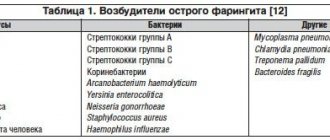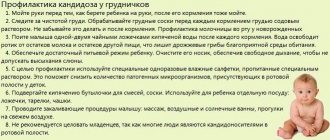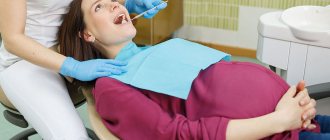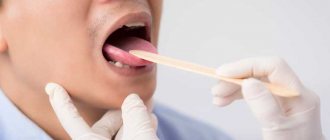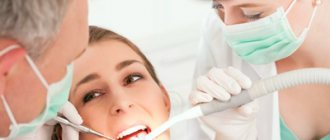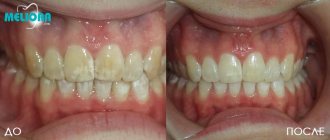What painkillers can you take while breastfeeding?
When breastfeeding, it is safe to take the following painkillers: Paracetamol, Ibuprofen, Drotaverine (“No-shpa”), Ketorolac (“Ketorol”, “Ketanov”, “Ketalgin”). Injections of lidocaine or articaine are suitable for pain relief during dental treatment. For local anesthesia for bruises and some other injuries, you can use ointments based on diclofenac.
| Allowed | Prohibited |
| Paracetamol | Metamizole sodium (Analgin) |
| Ibuprofen | Nimesulide (“Nimesil”, “Nise”) |
| Drotaverine ("No-shpa") | Acetylsalicylic acid (“Citramon”, “Aspirin”) |
| Ketorolac (“Ketorol”, “Ketanov”, “Ketalgin”) |
Ointments
Particular caution should be exercised when using all ointments, especially those containing hormonal preparations of the adrenal cortex. There are a lot of such ointments: Hydrocortisone, Corticomycetin (it also contains chloramphenicol), Prednisolone, Dermosolone, Laticort, Fluorocort, Kenalog, Silanar, Locacorten, Loriden, Celestoderm, Deperzolon. Whether a nursing mother can use these ointments depends on how large the surface to be lubricated is, how often it needs to be lubricated and what the preparation is. Therefore, if there is a need to use such ointments, you should definitely consult a doctor.
Terms of use
Dr. Komarovsky, for example, recommends avoiding the use of painkillers while breastfeeding or pregnant, as some drugs simply have not undergone proper clinical studies. However, if a woman cannot tolerate severe pain, there is no point in waiting for it to go away on its own or using dubious traditional methods. Here are a few rules that will help you quickly deal with the problem and avoid harming yourself and your child:
- It is important to understand: painkillers only relieve the symptom, but do not cure the disease itself. Therefore, in case of painful discomfort, it is recommended to consult a doctor, find the cause of the discomfort and eliminate it. So, if you have a toothache, visit the dentist; if you have pain in your ear, visit an ENT doctor. If the root cause is not eliminated, the pain will occur again and again, requiring another dose of medication.
- Even for a drug prescribed by a doctor, check the instructions, or rather the section “Use during pregnancy and breastfeeding.” There are no prohibitions - take it, and in the recommended dosage. But! The quantitative transfer of drugs into mother's milk has been studied only for a few drugs. Therefore, in most cases, you will see that the drug has not been studied during pregnancy and lactation, or pregnancy and lactation are contraindications for use (precisely due to the lack of studies on this group). Some mothers try to reduce the harm of drugs by reducing the dose. It is not recommended to do this; the expected effect will not happen (especially if we are talking about products that are acceptable during breastfeeding!).
- Look in the instructions for an indicator that is important for us - the drug elimination period. As a rule, it is the same for blood plasma and breast milk. This way you can calculate the period when the drug leaves your body. Analgesics penetrate into the blood and into mother's milk at the same time: this requires only half an hour, the maximum concentration occurs after 1–1.5 hours. And they appear longer – up to 2–7. The half-life of paracetamol, for example, is about 3, and acetylsalicylic acid - up to 7.
Is it possible to feed a baby immediately after dental treatment is completed?
Ideally, three to five hours should pass between the administration of the anesthetic and the application of the crumbs to the breast. Knowing this, a woman can prepare a portion of milk for one feeding.
During a forced break in lactation, it is recommended to pump. This simple measure will eliminate the occurrence of painful and unpleasant sensations.
Dental treatment
Some young mothers are afraid to go for dental treatment because they read somewhere that anesthesia can have a bad effect on the quality of breast milk. In reality, this is not so: the doctor gives a local injection, which has a short-term effect and is quickly eliminated from the body, and therefore does not cause any harm to the baby’s health? As stated in the online magazine “Doctor Zubov”. So it is possible and necessary to treat teeth with pain relief during lactation. It is better to clarify in advance which drug will be administered to you, and inform the dentist about breastfeeding. In this case, the doctor will select the optimal remedy that will not only provide excellent pain relief during dental treatment, but will also be eliminated from the body as quickly as possible.
Literature:
- Treatment of headaches without drugs [Text]: monograph / [D. D. Molokov and others] ; Ministry of Health of the Russian Federation, State Budgetary Educational Institution of Further Professional Education "Irkutsk State. honey. acad. postgraduate education." - Irkutsk: IGMAPO, 2014. - 123 p.
- Headache. Issues of diagnosis, therapy, prevention [Text]: reference guide for general practitioners (in 2 parts) / O. A. Morozova; Ministry of Health of the Chuvash Republic, State. autonomous institution of the Chuvash Republic additional. prof. Education "Institute for advanced training of doctors". - Cheboksary: GAU DPO "IUV", 2016.
- Headache: what to do? / Alexandra Vasilyeva. - St. Petersburg. : Nev. prosp., 2002. - 123 p.
The text was checked by expert doctors: Head of the socio-psychological service of the Alkoklinik MC, psychologist Yu.P. Baranova, L.A. Serova, a psychiatrist-narcologist.
CAN'T FIND THE ANSWER?
Consult a specialist
Or call: +7 (495) 798-30-80
Call! We work around the clock!
List of approved drugs
Now a woman can turn to the Internet for help: just enter the appropriate name of the medicine into a search engine, and several sites will tell you whether it is allowed to be taken during pregnancy or lactation. For example, there is a universal reference book e-lactation. If we talk about painkillers, which are usually used for severe headaches and toothaches, as well as during extremely painful periods, here is a complete list of tablets that you can take, as well as intramuscular, external and rectal agents:
- Preparations containing paracetamol reduce temperature and pain, and also help to subside inflammatory processes. The main part leaves the body a couple of hours after administration.
- Ibuprofen-based drugs work for toothache, discomfort in joints and muscles. Suppositories and tablets relieve fever and help cope with the symptoms of ARVI. When using medications, less than one percent of the active substance gets into the milk - this is completely safe for the baby.
- Of the antispasmodics, that is, drugs that relax smooth muscles and relieve spasms, no-spa is allowed during breastfeeding. The drug eliminates discomfort in the intestines and can be used for stomach cramps or renal colic.
- If a nursing mother needs to treat caries or remove a tooth, injections of ultracaine or lidocaine can be used to anesthetize these processes. They quickly provide an analgesic effect and are then just as quickly eliminated from the body.
- In case of particularly severe pain syndrome, it is allowed to take “Ketorol” (also known under the names “Ketanov” and “Ketalgin”). This non-steroidal anti-inflammatory drug quickly provides pain relief. Used for migraines and menstrual pain. Two hours after administration it passes into breast milk, but its concentration is so low that even American and European doctors allow Ketorol to be taken by nursing mothers.
- Diclofenac. If the pain appears as a result of a bruise, sprain or other “sports” injury, doctors suggest using special anti-inflammatory pain-relieving ointments. The substance does not affect the quality and quantity of milk in any way and is quickly eliminated from the body. Diclofenac is contraindicated in people with high blood pressure or peptic ulcers.
Any doubts?
If you have the slightest doubt about whether you can take this or that medicine, consult a professional. Don't risk your child's health! Remember that you are not alone with the problem. You can get advice not only from your friends, but also from professionals - lactation consultants.
A mammologist at a clinic or a doctor at a antenatal clinic can give you contact information for such a consultant. Perhaps you were given the contact details of a breastfeeding consultant when you were in the maternity hospital.
You can ask for help at e-lactancia.org. This is the online directory of the Marina Alta Hospital "Compatibility of Breastfeeding with Pharmaceutical Drugs and other Products". APILAM (Association for the Promotion and Cultural and Scientific Research of Breastfeeding) is responsible for the information posted there. However, to use this resource it is advisable to know English.
In Russia there is an organization with similar goals - the Association of Consultants on Natural Feeding (AKEV). She has been working for about 10 years. Their website is located at: https://akev.info. Here you can also find the coordinates of specialists in your region.
Prohibited drugs
All of these pills are almost certainly in your medicine cabinet. But they are strictly prohibited for women who are breastfeeding. This list included:
- Analgin. In most countries, this drug is generally prohibited for use (not only by nursing women), as it contains a substance that provokes the development of agranulocytosis. If it gets into breast milk, it has an extremely negative effect on the functioning of the baby’s kidneys and circulatory system. Analgin is part of Baralgin, Tempalgin, Spazmalgon, Pentalgin, Spazgan. Approved for use only in the most extreme cases, at high temperatures that are not affected by other medications. Then an intramuscular injection of analgin with diphenhydramine and papaverine is given. However, only a doctor can prescribe such radical methods!
- "Nimesil" ("Nise", "Nimid" and other drugs based on nimesulide). Has an almost instant pain relieving effect. But due to the lack of a sufficient number of clinical studies, it is prohibited for use by pregnant and lactating women, as well as children under 12 years of age.
- Acetylsalicylic acid (aspirin and citramone). It negatively affects the functioning of the gastrointestinal tract of the baby and contributes to disruption of the kidneys and hematopoietic system.
How to reduce the likelihood of developing dental disease after childbirth
In order not to worry once again about dental diseases during the difficult period of recovery of the body after childbirth, it is important to follow the recommendations:
- At the pregnancy planning stage, cure all existing oral diseases.
- If caries appears, consult a doctor immediately. While the carious cavity is small, it can be treated absolutely painlessly without the use of anesthetics.
- Always practice good oral hygiene.
- Get routine checkups at your dentist's office twice a year.
Women who care about the health of their smile are much less likely to encounter the need for dental treatment during lactation.
Treatment of pain during menstruation
Pain is considered severe if it interferes with your daily activities, and such pain affects about 10% of women and is called dysmenorrhea. Remember, this is a serious symptom that is common to many conditions, including endometriosis or fibrosis, which means consulting a doctor is required.
Below are some ways to relieve period pain:
Regular physical activity and generally staying physically fit can reduce period pain. Pain relievers that reduce the effects of prostaglandins may help with menstrual pain. These painkillers include non-steroidal anti-inflammatory drugs (NSAIDs for short). Relaxation techniques, bed rest and simple measures such as applying heat to the lower abdomen (in the form of a warm water bottle or heating pad) can be very effective.

